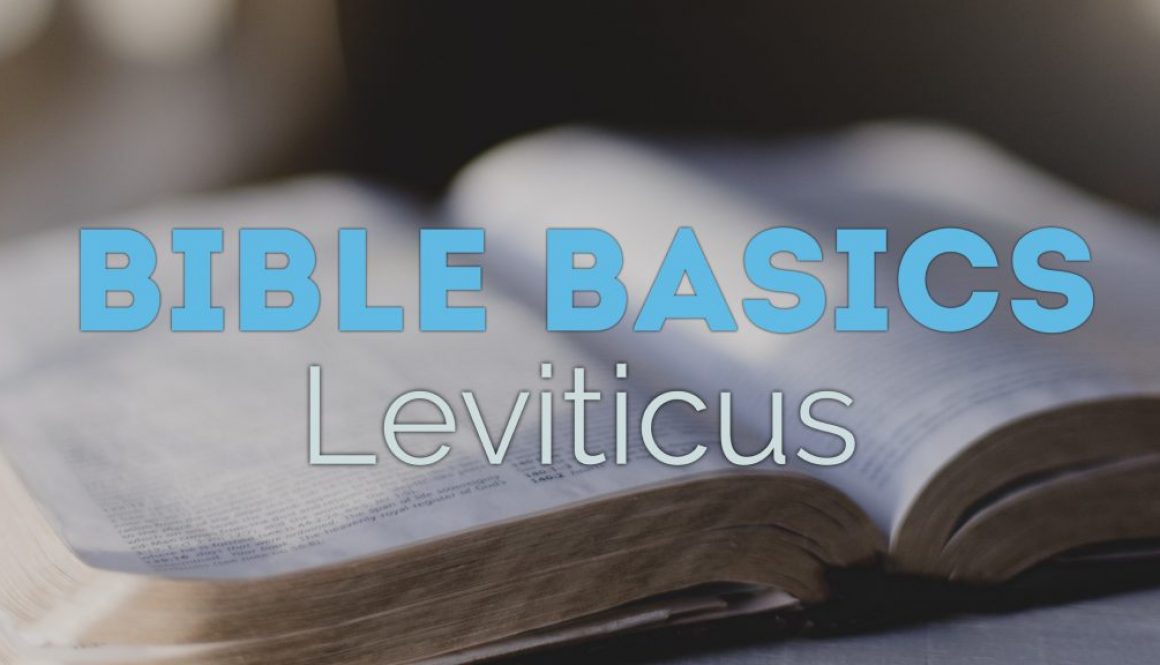Leviticus
Author
Moses. (See Luke 24:27 and John 5:46.)
Date
The message of Leviticus was preached during the first month of the second year after the exodus, when the people camped at Mount Sinai. It is unknown when Moses wrote the message down.
Audience and Purpose
After God dictated all the law to Moses on the mountaintop and in the tabernacle, Moses was commanded to delivered the law to the people of Israel (Leviticus 1:1-2). The book of Leviticus is the written record of the teaching Moses gave to the people at Mount Sinai in the wilderness.
Major Themes
- Priesthood. The name of the book comes from the term “Levites,” one of the tribes of the nation of Israel who would be set apart as the priesthood for the Jewish people. A priest was an earthly mediator who offered sacrifices in order to bring sinful people back to their Holy God. In the New Testament, Jesus is the considered the “great High Priest” who makes an eternal sacrifice to reconcile God and man. Afterward, He would say the church is now a holy priesthood bringing the grace of God to those who have not yet received salvation.
- Holiness.
- Atonement.
Key Scriptures
- Leviticus 19:1-2 — “And the Lord spoke to Moses, saying, ‘Speak to all the congregation of the people of Israel and say to them, You shall be holy, for I the Lord your God am holy.’”
- Leviticus 17:11 — “For the life of the flesh is in the blood, and I have given it for you on the altar to make atonement for your souls, for it is the blood that makes atonement by the life.”
Outline
- Leviticus 1:1-6:7 — The Five Offerings
- Leviticus 6:8-7:38 — How the Offerings Should Be Handled
- Leviticus 8:1-10:20 — The Priesthood
- Leviticus 11:1-15:33 — Laws Regarding What is Clean and Unclean
- Leviticus 16:1-34 — The Day of Atonement
- Leviticus 17:1-16 — The Blood of the Lamb
- Leviticus 18:1-22:33 — The Call to Holiness
- Leviticus 23:1-25:55 — Feasts and Fasts
- Leviticus 26:1-46 — Blessings and Curses
- Leviticus 27:1-34 — The Nation Vows to Follow the Law
Gospel Summary
The core message of the book of Leviticus is that God is perfectly holy, while man, due to his sin, is not holy at all. Mankind has been separated from God. In order to be restored to God, mankind must return to holiness, which requires perfectly keeping the laws of God or making the appropriate blood sacrifice, according to the law, in order to (temporarily) be made clean. The blood sacrifices of spotless animals made atonement for the sins of man, once per year, and reset each individual’s standing with God, but remaining sinless for the rest of the year was a major challenge in fulfilling the law.
In Jesus, our great High Priest, we see all of the legal demands set forth in Leviticus perfectly kept. Leviticus if full of types and symbols which Jesus would fulfill. Specifically, when Jesus died on the cross, He took the place of the spotless lamb and became the sinless sacrifice to cover the unrighteousness of mankind.
Since Jesus was God in the flesh, the atonement of His blood is permanent, never needing to be repeated, and all those who put their faith in Him have been made holy and blameless before God.
© Anthony Scott Ingram 2020. All Rights Reserved.
Photo by Carolyn V on Unsplash
Unless otherwise indicated, all Scripture quotations are from The Holy Bible, English Standard Version®, copyright © 2001 by Crossway Bibles, a publishing ministry of Good News Publishers. Used by permission. All rights reserved.”
Please note that I do get a small kickback from Amazon for any purchases made using certain links on this post. Should you choose to purchase from them, I just want to say thank you for further supporting my work in ministry!
